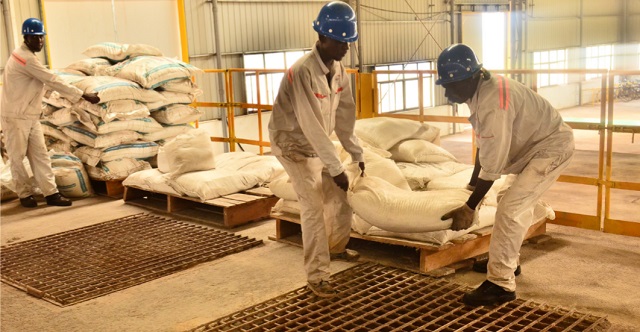
Experts define outlook for the sector amidst COVID-19 pandemic
Kampala, Uganda | JULIUS BUSINGE | What is the future of agribusiness given the prevailing effects brought about by coronavirus pandemic? How can agribusiness enterprises weather these effects and remain profitable while contributing growth of the economy?
These are some of the pertinent questions that experts at an online agribusiness meeting organized by Absa Bank Uganda discussed on August 20.
The forum topic was; an outlook on agribusiness in Uganda amidst the COVID-19 pandemic.
Experts say the agribusiness sector involves businesses of all sizes and multiple supply chains from production to distribution, marketing and consumption.
The discussion came at a time when most business enterprises were struggling to recover from the negative effects of COVID-19 that show most of them cut down production and post losses.
Mumba Kalifungwa, the managing director for Absa Bank Uganda said agribusiness is a key sector for stimulating Uganda’s economic growth prospects.
However, he said, its growth would, going forward depend on carefully designed partnerships between financing institutions, businesses and the government.
He said that Absa Bank Uganda’s credit commitment to the sector at the moment amounts to Shs100billion and they are ready for serious borrowers.
“For us to support you we must understand your business,” he said. He also said the Bank finds it easy to lend to groups that are easily monitored and have well designed business plans and are well managed.
He advises sector investors to go into it with a long term view, plan and after understanding the business environment, weather patterns and more.
Kalifungwa said that investors in the sector must understand the entire value chain right from production up to marketing so they are able to determine input costs, pricing and derive at profitability.
He also pointed out the need to produce and market what is being imported (import substitution) as a mechanism of supporting the local economy.
During the meeting, it was clear that sector investors are willing to invest more and expand the agribusiness sector, but are worried about the historical challenges they have been facing.
Speaking at the same forum, James Kanyije, the managing director at KK Fresh Produce Exporters Limited said the government should relax the conditions attached to extending credit/loans under the government Agriculture Credit Facility that is manned by Bank of Uganda.
“We hear the money is there, but getting it is a problem,” he said, “We need to protect the producer.”
Kanyije said that in the horticulture sector alone, farmers lose 64% at farm gate and 14% in the market due to lack of required infrastructure such as irrigation, transport facilities, capital, extension services, information and more.
He said sector players need financial partners who are willing to understand the COVID-19 situation and offer good pricing on loans to support businesses.
Sector challenges, he said, are partly to blame for the continued huge imports of some agriculture products like peace, apples, mangoes which in the end leave a dent on the economy.
In response, Rosette Bamwine, the head of credit and marketing – Agriculture Credit Facility (ACF) at Bank of Uganda said their gates remain open for those intending to access the ACF support since it is in line with government’s effort to promote agriculture commercialization.
“Micro, medium and large scale borrowers are benefiting from the facility,” she said. She urged financial institutions to do syndicate lending as a way of reaching out to as many sector borrowers as possible.
Bamwine also said that there is a lot of focus on the youth and women when it comes to supporting agribusiness given that this group consists of big numbers who are willing to take on available opportunities.
The ACF loans are given at 12% interest per annum. She urged lenders not to entirely pin lending to the sector using the ACF money on collateral so as to make it easy for more creditworthy borrowers to access the funds. Group lending and assessing the character of borrowers are some of the considerations that lenders could bank on while extending credit to the sector. The maximum loan amount to a single borrower is up to Shs.2.1billion.
According to Bamwine, as at June 30, 2020, the Bank of Uganda, through commercial banks had extended loan facilities amounting to Shs520billion for 772 projects across the entire country. Going forward, Bamwine said focus should be geared towards promotion of land rights, access to affordable and high quality inputs, market access, partnerships, and skilling agriculture lending staff within financial institutions. The other areas are improving financial literacy for famers and adoption of digital technology in addition to investing in good storage facilities.
The one and a half meeting was moderated by Edward Katende, the chief executive officer for Uganda Agribusiness Alliance (UAA).
****
 The Independent Uganda: You get the Truth we Pay the Price
The Independent Uganda: You get the Truth we Pay the Price


